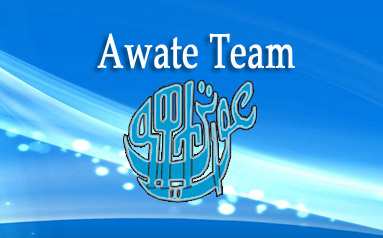The “Pardoning” Of The Brits: Another Day Of Infamy For Eritreans
 Add June 12, 2011 to the days of infamy that the Isaias Afwerki regime has presented as a gift to the Eritrean people. It should also be a day that should present dramatic lessons for the foes of the PFDJ, which is to say all Eritreans aspiring for a free, democratic, and just Eritrea. For on that date, the PFDJ showed once again the only thing that makes it yield. It is not reason; it is not appeal to do the right thing; it is not the law; it is not common decency. It is force, or the credible threat of use of force.
Add June 12, 2011 to the days of infamy that the Isaias Afwerki regime has presented as a gift to the Eritrean people. It should also be a day that should present dramatic lessons for the foes of the PFDJ, which is to say all Eritreans aspiring for a free, democratic, and just Eritrea. For on that date, the PFDJ showed once again the only thing that makes it yield. It is not reason; it is not appeal to do the right thing; it is not the law; it is not common decency. It is force, or the credible threat of use of force.
For on that date, the regime, which had incarcerated four British nationals since December 24, 1010; the regime which had, for months, pretended the British nationals don’t exist only to follow it up, just a week ago, with accusation that they were guilty of spying, espionage, sabotage and terrorism—simply released them. After all the official and unofficial drumbeat of accusation, the regime’s media had no explanation why they were released. Eritreans, once again, had to hear the news from foreign sources—the “deal” involves, once again, the state of Qatar: the same country that brokered another deal (the Djibouti Eritrea peace agreement)—a deal that the Eritrean people were, and still are, kept completely in the dark about.
We don’t know the full details of this “deal” but, in time, we will. If the employer of the four British nationals, PVI, paid ransom for the freedom of its employees, it will have completely undermined its credibility with its clients. PVI’s entire rationale for existing is to tell merchants who are victims of piracy that it is better and more cost-effective to hire PVI and secure protection than it is to pay ransom to pirates. If the “deal” includes a payment by PVI, directly or indirectly, to the mafia regime of Isaias Afwerki, then PVI will have put a big dent on its credibility and it will have a hard time convincing its clients that ransom payment is not the way forward. We also have unconfirmed information indicating that Qatar uses the services of PVI.
As for PFDJ, you can’t lose what you never had: the PFDJ had no credibility to begin with and it is hard to see how it could suffer from its latest embarrassment. Those who despise the PFDJ will continue to despise it; and those who are experts at rationalizing its disastrous misrule, will continue to rationalize it. The PFDJ has a long track record of embarrassing and humiliating Eritreans; and its supporters have developed an equally long track record of justifying and rationalizing its behavior. Here are some examples of extremely humiliating moments for Eritreans since the PFDJ came to power. Given the daily humiliation that Eritreans are suffering, this is not even a fraction of the indignity that Eritreans have known since this regime came to power; only the most well-known:
June 20, 1991: On the occasion of “martyr’s day”, and basking in the post-liberation honeymoon, the Eritrean dictator announces that “henceforth, there shall be no more contest among organized political parties.” In his usually dismissive language, he describes the right of Eritreans to organize themselves into political organizations and contest for political power as “nai wedebat hashewye.” In Eritrea, hashewye is a game played by little girls: they hold hands, form a circle and sing. The right to assembly and organization is equated with a child’s frivolous game.
April 24, 1993: Thousands of soldiers and veterans march to protest against service-without-pay. The rank and file is told that the government will pay them $25/month. Those identified as leaders of the uprising are quietly picked up and made to disappear.
December 5, 1994: Hundreds of Eritrean Muslims, including Quran and Arabic teachers, were arrested on the same day that the Eritrean regime severed its relationship with Sudan. Repeated appeals by community elders were ignored and the arrested are presumed to have been executed.
March 2, 1995: The Eritrean regime stripped the citizenship of Eritrean adherents of “Jehovah’s Witnesses” for refusing to participate in the armed struggle and refusing to cast votes in Eritrean referendum for independence. This early warning that the regime treats citizenship as a favor it bestows generated no reaction from the Eritrean people because the Jehovah’s Witnesses are a small minority. (http://www.awate.com/portal/content/view/1345/11/)
June 1995: Disabled war veterans at Mai Habar stage a demonstration and civil disobedience to protest their appalling living conditions. At least three are mowed down to death.
February 27, 1999: The Eritrean regime accepts a peace treaty it had rejected for months and requests, and gets, a special Security Council meeting to ask for the end of hostilities with Ethiopia. As it was communicating this to the UN, its media was telling the Eritrean people nothing other than the usual “we are winning.”
June 18, 2000: The Eritrean regime signs a ceasefire agreement accepting Ethiopian dominance: the ceasefire agreement is signed with Ethiopians deep inside Eritrean territory, with a promise of a 15-mile buffer zone entirely within Eritrea. Despite all the Eritrean regime’s bragging that it was well prepared, and weeks of ridiculing the Ethiopian “catalog shopping” for arms, the Eritrean army was betrayed by its playboy and corrupt leaders. The terms of surrender are formalized in December 2000 with the Algiers Agreement.
August 10, 2001: Hundreds of University of Asmara students who were protesting government policy as well as the detention of their student union president are ordered to report to a football stadium. Mothers who came to inquire about their children were beaten with batons by military police. The students were rounded up and taken to the desolate Wia. At least two students died there of heatstroke. The students suffered intense mental anguish in re-education camps and were returned to Eritrea after their “leaders” were made to disappear and the nearly 2,000 students were coerced into signing “confession” letters in exchange for “forgiveness.”
September 19, 2001: The Eritrean regime shuts down the nascent private press and arrests reporters and editors. In its ever shifting explanation for the arrest, the regime claims that the newspapers had failed to file annual financial statements; then for working against national unity; then for treason. Most of the arrested have died at Eira Eiro.
October 6, 2001: Eritrean elders who had written a letter requiring the two feuding sides of the PFDJ to reconcile, are arrested for “meeting illegally” and “endangering national unity.”
December 19, 2005: The Eritrea-Ethiopia Claims Commission, which was set up to, among other things, determine the origin of the conflict, establishes that the PFDJ regime is responsible for initiating the Eritrea-Ethiopia war of 1998. “The areas initially invaded by Eritrean forces on that day were all either within undisputed Ethiopian territory or within territory that was peacefully administered by Ethiopia and that later would be on the Ethiopian side of the line to which Ethiopian armed forces were obligated to withdraw in 2000 under the Cease-Fire Agreement of June 18, 2000.” http://www.pca-cpa.org/upload/files/FINAL%20ET%20JAB.pdf
January 20, 2006: The Eritrean regime removed from authority, and then held in house arrest, Abune Antonios, the Patriarch of the Eritrean Orthodox Church. The patriarch had repeatedly protested the arrest of priests and the intrusion of the regime into church affairs. In complete disregard of church canons, the regime orchestrated the replacement of Abune Antonios by its own hand-picked Patriarch.
June 6, 2010: After two years of denying a military conflagration with Djibouti which was ignited in June 2008, after dismissing all appeals and entreaties by the AU, the Arab League, IGAD and the UN, the Eritrean regime signs , in secret, a mediation agreement brokered by Qatar. The terms of the mediation agreement specify terms for exchange of prisoners, and missing persons. This agreement has never been mentioned in any of the government-owned Eritrean media. https://awate.com/eritrea-djibouti-mediation-agreement-3/
June 12, 2011: The Eritrean regime releases British prisoners it had held incommunicado for six months, a week after it had formally accused them of espionage, sabotage and terrorism. Addressing his rubber stamp “Council of Ministers” on June 13, 2011, the Eritrean tyrant announced that they had been “pardoned” in accordance with law. We are happy for the released Brits and their family members. They should never have been detained, without charges, for six months and they should have had access to consular services. From our perspective, the day is a day of infamy because it highlights the difference between how the Eritrean regime treats foreign nationals and its own citizens. In the 20 years that the regime has been in power, it has not “pardoned” a single Eritrean and in that regard, and indeed in many other aspects, the Isaias Afwerki regime is failing even by the standards of the imperial and the subsequent Marxist Ethiopian regimes, as well as the fascistic Italian regimes which had occupied Eritrea until the end of World War II. The British citizens were most likely not physically abused, or tortured, and they were probably given acceptable meals—all the more so they can be good “ambassadors” of how well they were treated. This is not how Eritrean prisoners are treated. We are encouraged by the statement of the British government, which expressly thanked the Qatari government without thanking the Eritrean regime and for stating that it still has issues with the Eritrean regime. It is positively Churcillian and we hope the British government won’t go, in the words of Margaret Thatcher, all ‘wobbly” now.
One can add many more dates to those listed above: the arrest of the G-15, the suspension of the constitution, the cancellation of the December 2001 elections, etc. What is important to note is that these increasingly brazen incidents of a regime overstepping its mandate occurred in broad daylight and with the Eritrean people being either indifferent or supportive of them. If Eritreans hope to stop the PFDJ from extending its 20 years of indignity into another 20, it is time for us to shake off our fears, to be emboldened and to demand change and work for it NOW.



Awate Forum